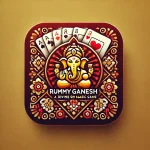Description
Rummy: A Comprehensive Guide: Strategies and Insights Rummy is a traditional card game that has enthralled players for many years. Both casual players and serious competitors like it because of its unique combination of skill, strategy, & a little bit of luck. It is imperative for anyone who wants to get better at Rummy to comprehend the basics. Rummy is essentially about using the cards that are dealt to each player to form sets and runs.
A run is a string of three or more cards in the same suit, whereas a set is made up of three or four cards of the same rank but different suits. When the game is over, the goal is to combine these combinations while lowering the number of points in your hand. Your playing experience can be greatly improved by being familiar with the rules & variations of rummy, such as Indian rummy, Gin rummy, or Kalooki. A predetermined number of cards are usually dealt to each player at the start of the game, and the remaining cards are arranged in a draw pile.
Players try to make valid melds by taking turns drawing from the draw pile or the discard pile. In order to keep an eye on their opponents’ moves while deciding which cards to keep and which to discard, players must use their strategic thinking. While it’s vital to understand the fundamentals of rummy, it’s just as important to understand the subtleties that can improve your gameplay.
This entails anticipating your opponents’ moves, identifying trends in the distribution of cards, and modifying your plan of action in response to the game’s progression. Through mastery of these fundamental components, players can position themselves for success in this captivating card game. A combination of foresight, flexibility, & probability knowledge are needed to create a winning rummy strategy. A good strategy is to concentrate on creating melds as fast as you can while keeping your hand flexible. Cards that can contribute to several possible sets or runs should be given priority.
Maintaining a 7 of hearts, for example, can help you finish a run while also leaving options open for other melds if you have a 5 and 6 of hearts. It’s also a good idea to record which cards your opponents have thrown out; this can give you important information about their tactics & assist you in deciding which cards to keep. Effectively controlling your hand size is a crucial component of creating a successful strategy.
In order to continue working toward their melds, players should try to keep their hands as small as possible. It also gives you more control over the game’s pace & lowers the number of points you could win at the end of the match. Reevaluating your approach might be necessary if you find yourself holding onto too many cards without moving closer to melding. Think about eliminating high-point cards that are unlikely to help you make melds, particularly if they don’t appear in any combinations right away. Rummy players can increase their chances of winning by keeping a balanced offensive and defensive strategy.
In rummy, discarding is crucial. In Rummy, discarding is an essential component that has a big impact on the game’s result. It is important to carefully consider your hand as well as the possible hands of your opponents when deciding which card to discard.
Throwing away cards that could help others is a common error made by inexperienced players. Discarding strategically to outmaneuver opponents. For instance, you risk giving your opponent a chance to finish their melds if you discard a 7 of diamonds when you know they have already picked up multiple diamonds. It is therefore crucial to keep an eye on what your opponents are gathering and modify your discards appropriately.
By using this strategic approach, you can outmaneuver your opponents & win the game. Learning to Throw Out. Developing the skill of discarding also entails knowing when to discard high-point and low-point cards. Holding onto lower-point cards until you can make a meld with them or until you are certain they won’t help your opponents is usually a good idea.
It might be prudent to discard high-point cards early in the game, on the other hand, if you find that they are not helping you make melds. By taking this proactive stance, you reduce your risk and maintain control over your hand as you strive to create legitimate combinations. The secret to winning at rummy. In the end, successful discarding can mean the difference between winning and losing at Rummy. Your chances of winning the game can be greatly increased by observing your opponents’ moves, modifying your discards appropriately, and becoming an expert at the art of discarding.
Rummy is made more exciting by the addition of jokers & wild cards, which give players special chances to improve their hands. When creating melds, these adaptable cards can be used in place of any other card, which makes them extremely useful tools for players. Using a joker strategically is essential; think about holding onto it until you can maximize its potential impact on your melds.
For example, you can use the joker to finish a run with adjacent numbers or combine two 8s and a joker to form a set. Even though jokers are useful tools, they shouldn’t be used all the time. An excessive reliance on wild cards may result in lost chances to create conventional melds with ordinary cards.
Finding a balance between building your hand with regular cards and making good use of jokers is crucial. Remind yourself that opponents might also be competing for jokers; therefore, knowing when they are drawn or discarded can reveal information about their tactics. Gaining proficiency with jokers and wild cards can greatly increase a player’s chances of creating winning Rummy combinations. When it comes to Rummy, observation is just as crucial as strategy. You can learn a great deal about your opponents’ hands and intentions by closely observing their movements.
An opponent is probably aiming for particular melds involving those cards if, for example, they routinely remove particular suits or ranks from the discard pile. By identifying these trends early on, you can modify your approach by either blocking their possible melds or eliminating cards that aren’t as likely to help them. Also, you can gain an advantage in gameplay by comprehending the psychology underlying your opponents’ actions. By discarding high-point cards early on or picking up cards that don’t seem relevant, some players may bluff and deceive others about their true intentions. While it takes time and experience to become proficient at reading these cues, it can greatly improve your ability to make decisions while playing the game.
Players can learn more about their opponents’ tactics and make better decisions during play by fusing strategic thinking with acute observation. The key to playing Rummy successfully is to take advantage of melding opportunities. Players must continue to be adaptable and receptive in their approach to their hands in order to accomplish this successfully. Prioritizing the formation of runs over sets whenever feasible is a useful tactic because runs frequently permit more combinations because of their sequential nature.
For instance, concentrating on finishing the run with spades rather than attempting to form sets with isolated cards may be more effective if you have a 4, 5, and 6 of spades, a 3 of hearts, and an 8 of diamonds. Also, players should constantly be alert for chances to make several melds at once. Holding onto cards that have two uses, like a card that can be used in both a set & a possible run, could help you have more options when it comes to melding as the game goes on. Also, think about how your discards may impact your capacity to create new melds; occasionally, keeping a card longer than necessary can result in missed melding opportunities in the future.
Players’ chances of winning can be greatly increased by continuously looking for methods to take advantage of melding opportunities throughout the game. In Rummy, it’s critical to know when to hold onto your hand or drop out of a round in order to minimize losses & maximize possible gains. If you have an exceptionally bad hand or think your opponents are just about to win, dropping early can be beneficial. By leaving the game before the end of the round, you can prevent your hand from earning high points from unmelded cards.
This choice should not be made hastily, though; in order to make wise decisions, one must balance the risks and possible rewards. On the other hand, there are situations in which holding on to your hand might be more beneficial than quitting early. Staying in the game longer might be worthwhile if you have multiple high-potential melds developing or if you think that future draws will turn out well for you.
If you’re behind but still have chances to improve your hand, hanging on might result in a comeback in later rounds. You should also take into account how many rounds have already been played. Ultimately, it takes intuition and experience to learn how to strike a balance between dropping and holding, but doing so can have a big impact on your overall Rummy performance. One of a rummy player’s most important abilities is the capacity to remain composed under duress. There are often tense moments in card games, whether you’re waiting for that important draw or seeing an opponent make a move that could ruin your plans.
Instead of giving in to panic or frustration, players who maintain composure during these high-stakes situations are able to think clearly and make logical decisions. This feeling of calm can be developed by engaging in deep breathing exercises or mindfulness practices prior to or during gameplay. Also, controlling emotions involves more than just keeping your cool; it also entails realizing how emotions can affect your ability to make decisions while playing games. After winning multiple rounds, for example, players may become overconfident and take unwarranted chances or make snap decisions that could endanger their position in later rounds. Loss-related frustration, on the other hand, can impair judgment & cause desperate decisions.
Players can improve their overall performance in Rummy and have a more satisfying gaming experience by cultivating emotional awareness & practicing self-regulation techniques. In summary, learning Rummy entails comprehending its basic principles and creating strategic plans suited to each player’s preferred style of play. Each element plays a major role in overall success in this captivating card game, from efficient discarding strategies and optimizing melding opportunities to closely monitoring opponents’ moves and controlling emotions under duress.
At the card table, players can improve their gameplay and have endless hours of fun by developing these skills through practice & experience.

